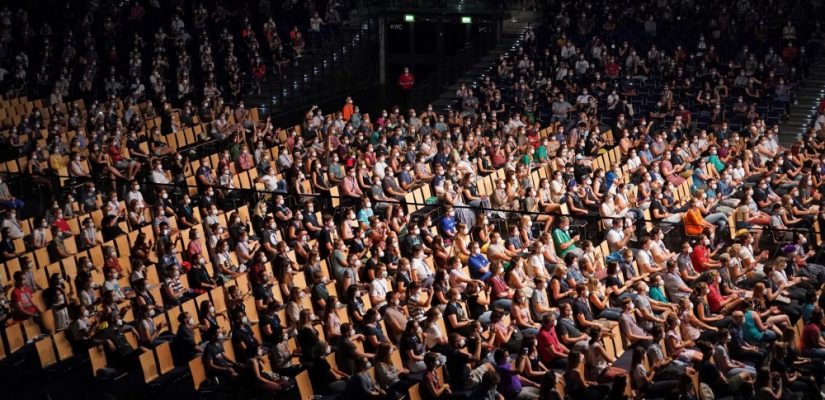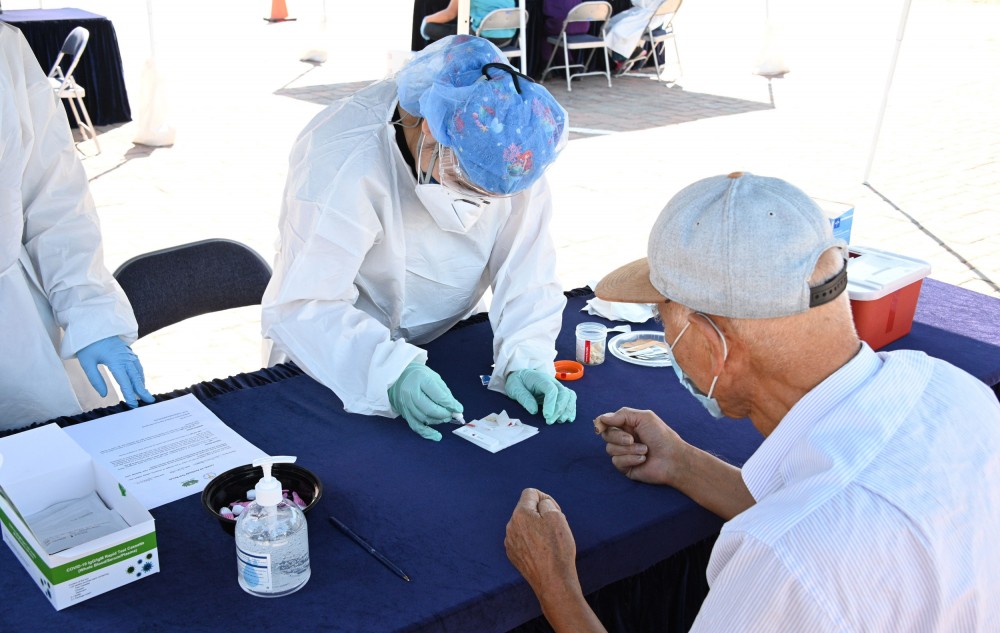
As the second wave of COVID inspires fear around the world, the fear of concerts and clubs might be a bit overblown. Many countries are testing ways of partying with safety measures to avoid spreading the virus.
German scientists decided to plan a 4,200-person experimental concert to gain a better understanding of COVID-19’s transmission risk. After an exhaustive investigation, researchers determined that music concerts are safe with masks and proper ventilation.
University Medical Center Halle (Saale) performed the study. A group of professionals recruited “healthy volunteers” between the ages of 18 and 50 for the music concert study. The 10-hour-long testing stage took place in Leipzig, Germany, on August 22nd. A strange situation for many, and a party opportunity for many others.

In summary, organizers welcomed 1,500 volunteers for testing in a 12,200-person capacity venue. The Arena Leipzig hosted three distinct concert simulations, each delivered by Berlin-born singer Tim Bendzko. Volunteers also took COVID-19 tests ahead of time.
Volunteers wore FFP2 respirator masks, contact tracers, and ample hand sanitizer from those overseeing the happening. At first, participants experienced Bendzko’s music without social distancing, the same way as before the pandemic. Then, the experiment came to a second phase when audience members respected the social distance throughout the performance. Finally, the last component encompassed the guests enjoyed the concert in seats and then departed via tram.
After a long period of studies, the organizers finally revealed their findings yesterday. The results came out in an official release and at a live-streamed press conference. Basically, the results state that adequate airflow is a crucial factor to reduce the risk of infection significantly. During the testing, they even used a fog machine to gain a visual reference.

Similarly, Restart-19 found that the majority of person-to-person interactions and potential COVID-19 transmissions occurred around the entrance and during breaks between concerts. These areas “must be the focus of planning” for promoters and venues. And in conjunction with other preventative measures, precautions can contribute to safe gigs amid the pandemic, according to the medical experts. Anyways, while the virus keeps spreading, concerts are not very likely to take place as they did before.
After the event, 90 percent of participants agreed that it’s good to wear a mask. They are willing to wear them again in concerts in order to achieve the return of large-audience performances. As a whole, Restart-19’s conclusions appear generally encouraging in the context of concerts’ and festivals’ eventual full-scale return. In a best-case scenario, it could arrive sometime next year.